The Watershed Institute is looking for volunteers to help us protect and restore the natural habitats in our 950-acre Watershed Reserve. Through our popular Adopt-a-Plot Program, you can become a steward of a plot of land near our Hickory Loop Boardwalk. By “adopting” a plot, you and your family or group will be assigned a specific section of the forest to tend at your own pace and time.
In many portions of the Reserve, natural habitats are being undermined by non-native (“invasive”) plant species that compete with the native flora. We need volunteers who can commit to tending to their assigned plot on a regular basis (twice a month is ideal, but we value whatever time you can commit) and for an extended period of time (at least a year, although plots are active mid-March – mid-November). We have plots ready to be adopted; join us to help us restore our habitat and promote the health of native species of flora and fauna.
Plots Available for Adoption
S-4:
- Light level: partially shaded.
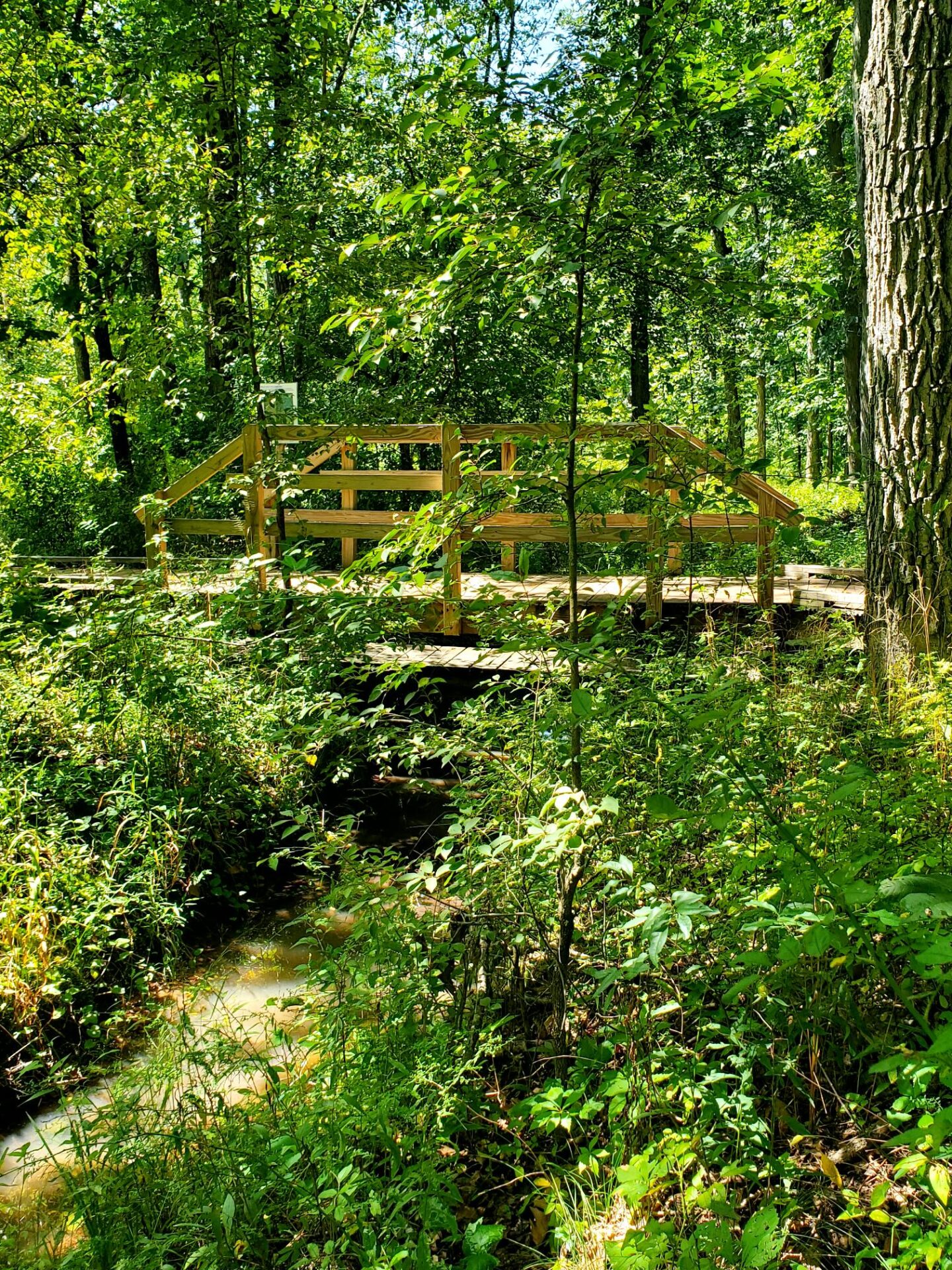
- Invasive Plants: honeysuckle vines, Japanese stilt grass, Common privet
- Notable Natives: shagbark hickory, black haw viburnum
- Special Features:
-
- log pile that can be arranged to your liking
- waterfront property with overlooking bridge
- short in depth but wide in girth

- Difficulty Level (1-easiest to 3- most difficult)- 2
Adopted
S-6:
- Light level: partially shaded.
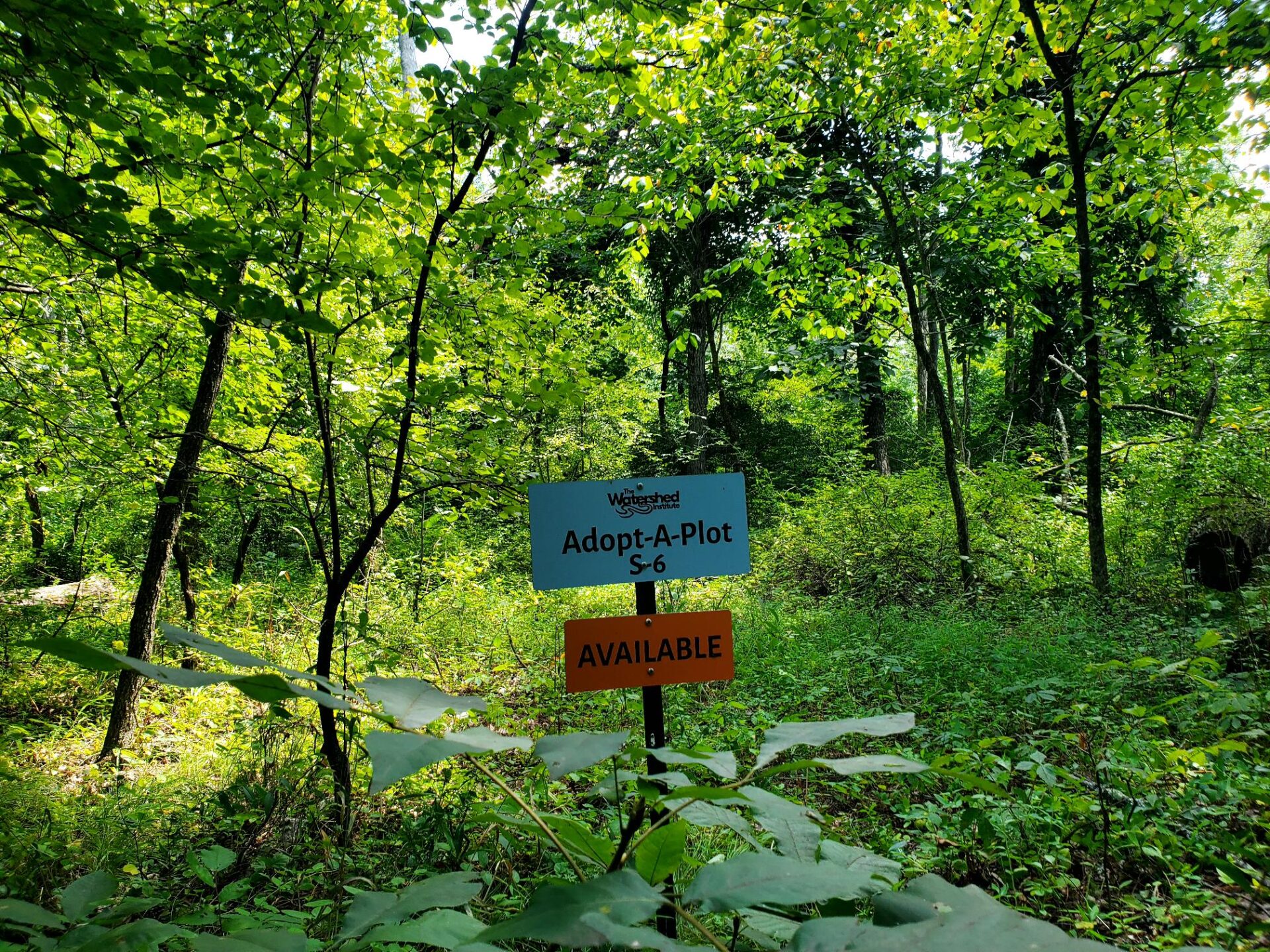
- Invasive Plants: honeysuckle vines, multiflora rose, Japanese stilt grass.
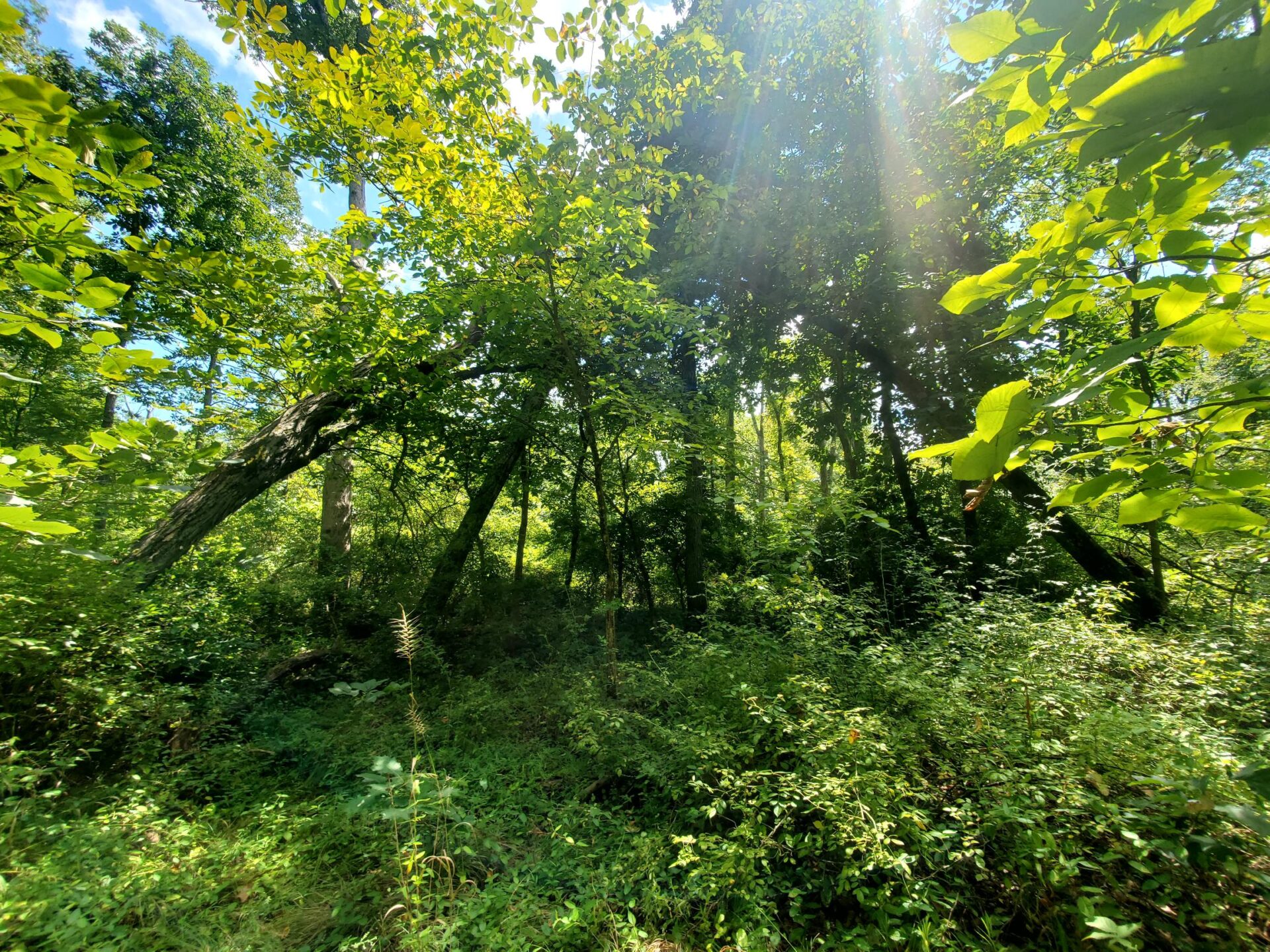 Notable Natives: shagbark hickory, black haw viburnum
Notable Natives: shagbark hickory, black haw viburnum - Special Features:
-
- Shaded nook in the backyard created by a cluster of leaning hickories
- Grove of black haw viburnum
- Squirrels often dine at the head table of this lovely establishment.
- Difficulty Level (1-easiest to 3-most difficult)- 2
Adopted
S-7:

- Light level: partially sunny.
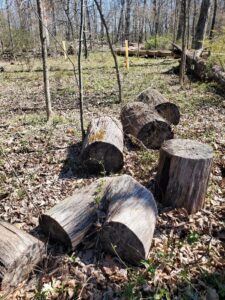
- Invasive Plants: bush honeysuckle, multiflora rose, vine honeysuckle, garlic mustard.
- Notable Natives: trout lily, spring beauty, blackhaw viburnum, shagbark hickory, white oak
- Special Features:
-
- Fallen tree that serves as a hotel to plants and animals alike, it’s totally moss-ome!
- It has a fallen log that looks like a pair of shorts.
- Difficulty Level (1-easiest to 3-most difficult)- 2.5 due to an expansive ground cover of honeysuckle vines.
Adopted
S-13:
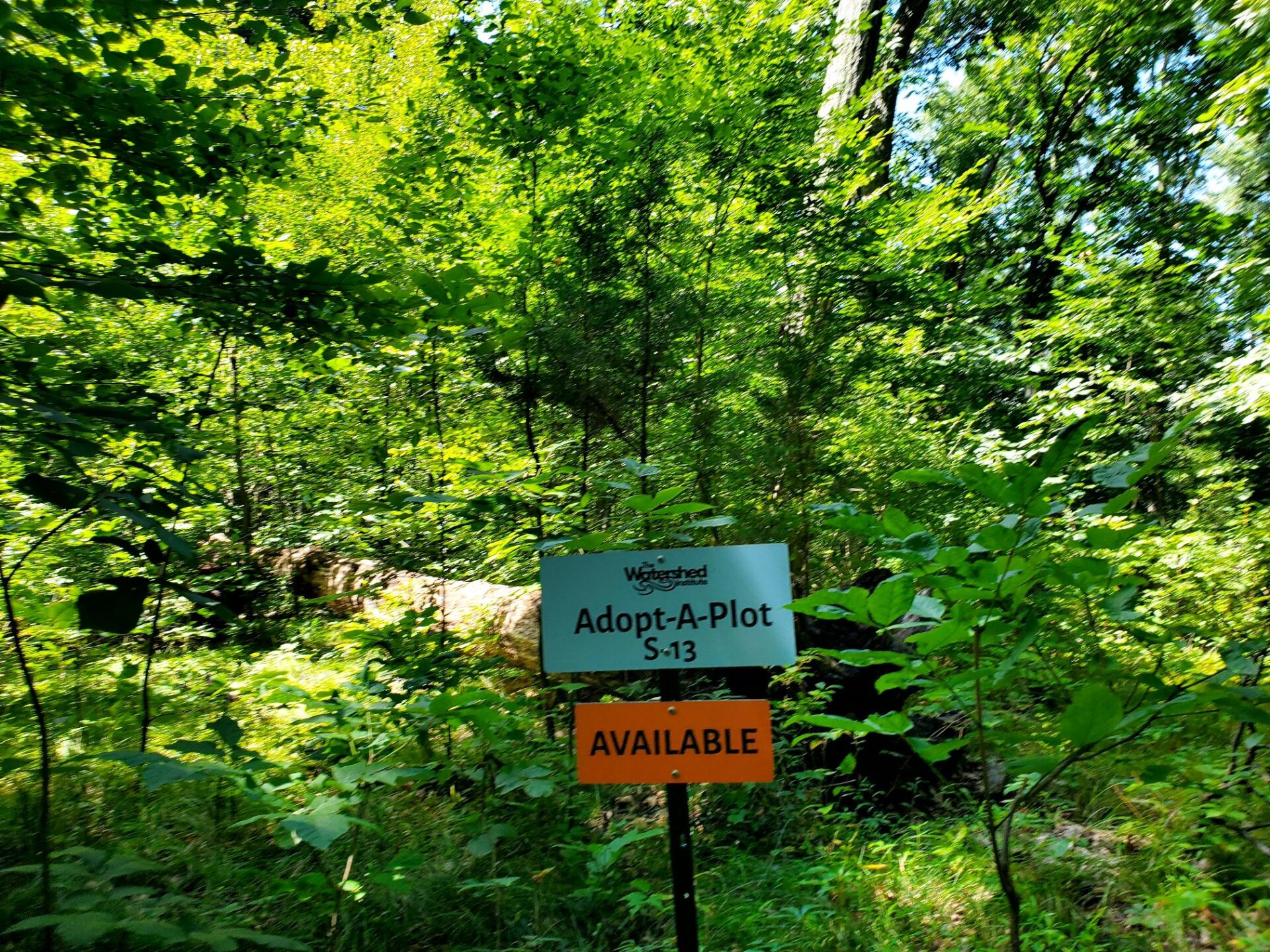
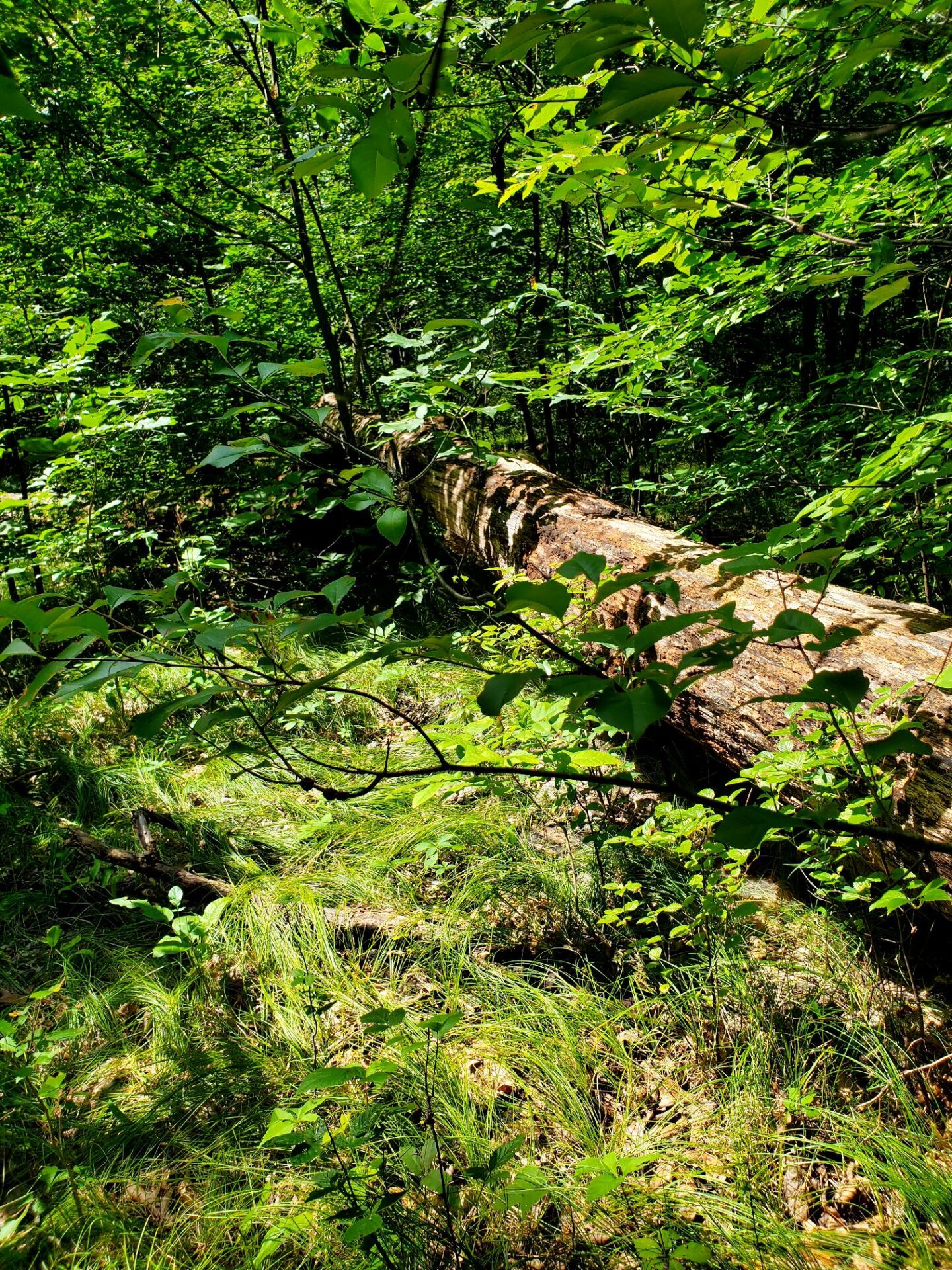
- Light Level: partially shaded.
- Invasive Plants: honeysuckle vine, European privet, Japanese stilt grass
- Notable Natives: shagbark hickory, Pennsylvania sedge, pasture rose, red oak, arrowwood viburnum.
- Special Features:
-
- Notable understory composition of native pasture rose and arrowwood viburnum with a Pennsylvania sedge ground cover and nice mix of saplings and mature trees.
- Opportunity to sunbathe on a sizeable, downed tree.
- Difficulty Level (1-easiest to 3-most difficult)- 1
Adopted
S-14:
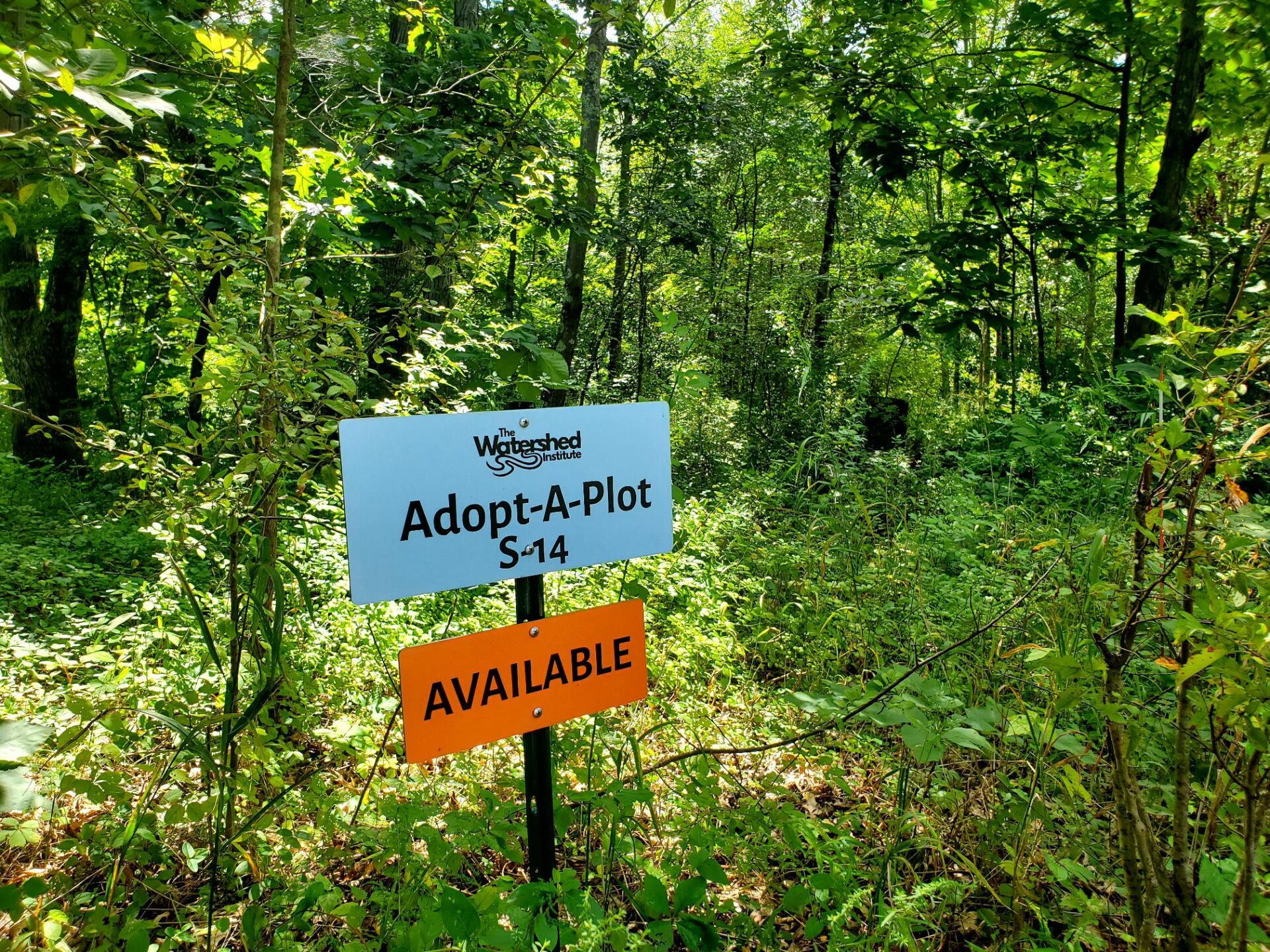
- Light Level: mostly shaded.
- Invasive Plants: honeysuckle vine, crabapple, multiflora rose, bush honeysuckle.
- Notable Natives: red oak, shagbark hickory
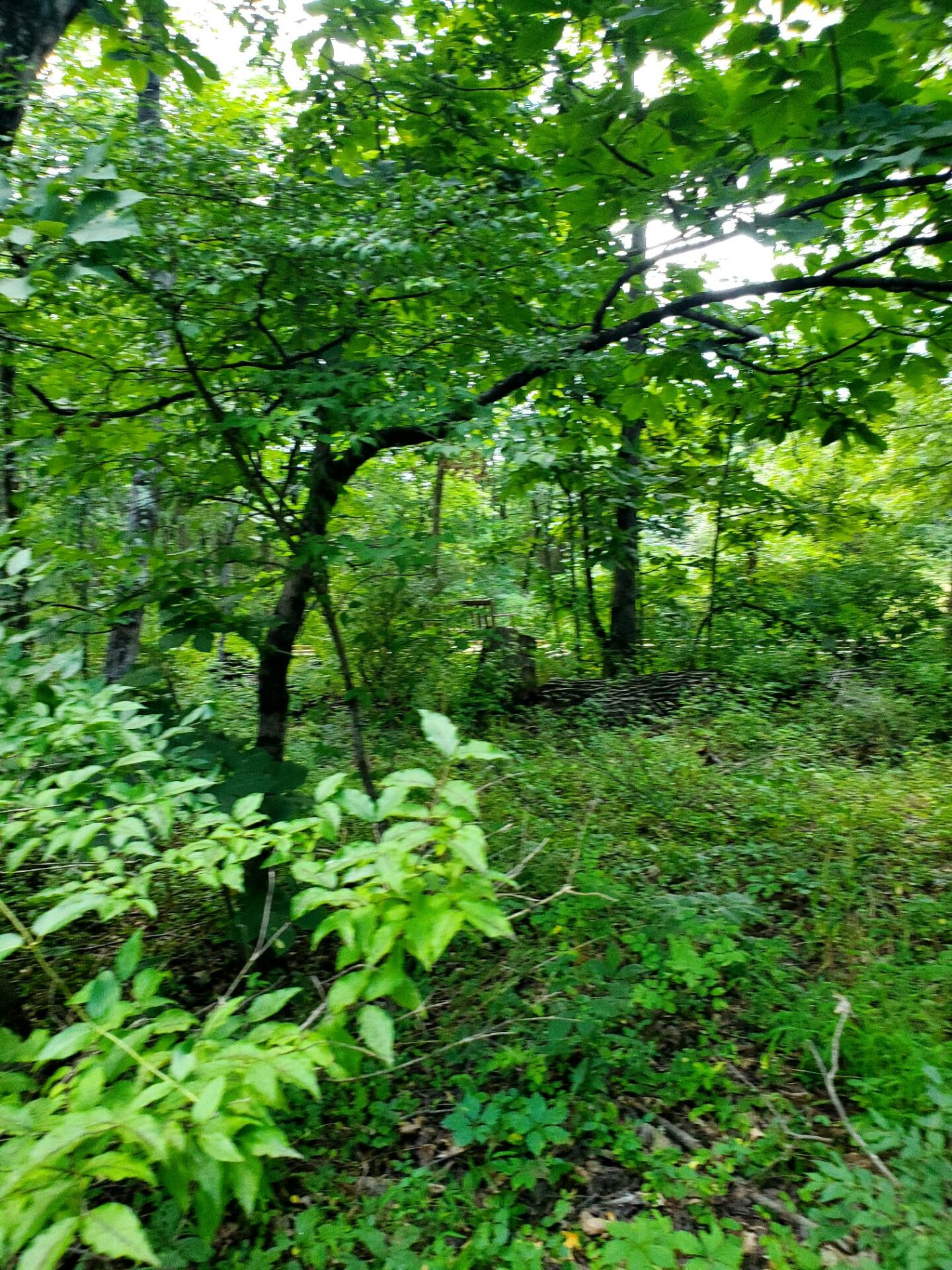
- Special Features:
-
- understory of oak and hickory saplings
- deep in depth, but short in width
- Difficulty Level (1-easiest to 3-most difficult)- 2.5
Adopted
S-31:
- Light Level: heavily shaded with an opening in the forest canopy
 .
.
- Invasive Plants: stiltgrass, multiflora rose, honeysuckle vine, honeysuckle bush
- Notable Natives: shagbark hickory, sedges, blackhaw viburnum, white oak, red oak
- Special Features:
-
- Large fallen trees that can be found once uncovered from honeysuckle and multiflora rose.
- This large plot is made for a hardy group of people that love a challenge!
- This is a wonderful habitat that has fallen victim to a tree fall that opened the canopy and created an opportune site for honeysuckle and multiflora rose.
- Difficulty Level (1-easiest to 3-most difficult)- 2.5 due to the expansive ground cover of honeysuckle vines.
Adopted
Don’t have time, but still want to help take care of the forest? Please donate
